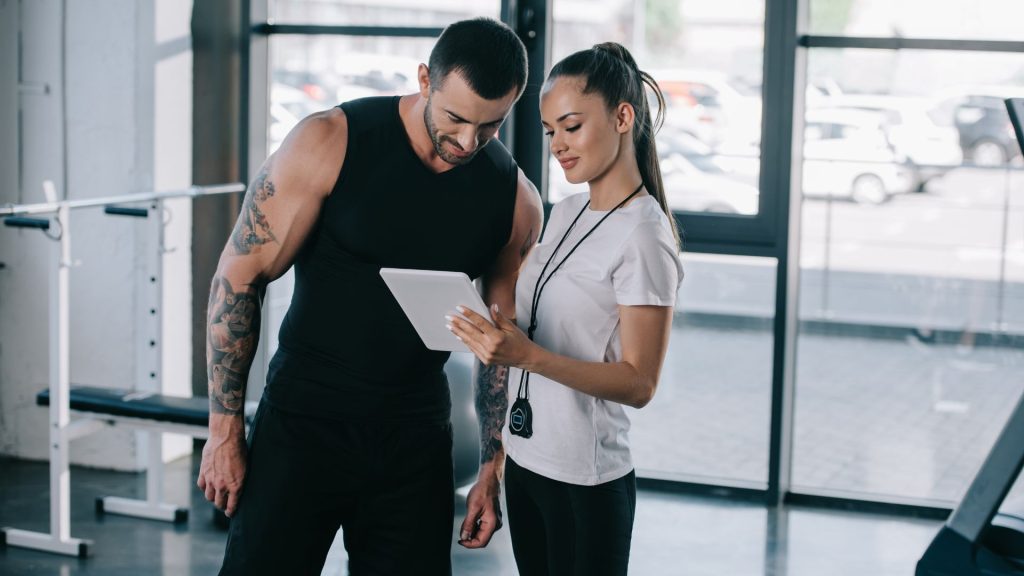Discover AI’s Role in Advancing Personalized Workout Plans

Discover AI’s Role in Advancing Personalized Workout Plans
#AI #Fitness #Health

Introduction
In the modern era of technology, Artificial Intelligence (AI) is revolutionizing various sectors, including health and fitness. Personalized workout plans have become a cornerstone for fitness enthusiasts seeking tailored regimens that cater to their individual needs. AI plays a pivotal role in advancing these personalized plans by analyzing vast amounts of data to create customized workouts that maximize results and minimize the risk of injury.
This article explores how AI is transforming the fitness industry by providing personalized workout solutions, enhancing user engagement, and promoting healthier lifestyles.
The Need for Personalization in Fitness
Every individual is unique, with different body types, fitness levels, goals, and health conditions. A one-size-fits-all approach to fitness often leads to suboptimal results and can even cause harm. Personalized workout plans address this issue by tailoring exercises to meet specific needs, which:
- Enhances Efficiency: Focuses on exercises that align with individual goals, making workouts more effective.
- Reduces Injury Risk: Considers physical limitations and health conditions to prevent strain and injuries.
- Increases Motivation: Personalized goals and milestones keep individuals engaged and motivated.
However, creating such tailored plans requires expertise and time, which is where AI steps in to bridge the gap.
Integration of AI in Personalized Workouts
AI leverages data analytics, machine learning algorithms, and user feedback to create dynamic and adaptive workout plans. Key ways AI contributes include:
Data Analysis and Insights
By collecting data on user habits, preferences, and performance, AI systems can identify patterns and make informed recommendations. Wearable devices and fitness apps track metrics such as heart rate, calories burned, and sleep quality, providing a comprehensive view of an individual’s health.
Adaptive Learning
AI algorithms learn from user interactions and progress, adjusting workout intensity and exercises accordingly. This ensures that the workout plan evolves with the user’s improving fitness level or adapts if setbacks occur.
Virtual Coaching and Support
AI-powered virtual coaches provide real-time feedback and motivation. They can correct form through motion detection technology and offer encouragement, replicating the experience of a personal trainer.
Customization and Variety
AI systems can generate a variety of exercises to prevent monotony and target different muscle groups, keeping workouts engaging and comprehensive.
Benefits of AI-Personalized Workout Plans
Incorporating AI into personalized workout plans offers numerous advantages:
- Accessibility: Makes expert fitness guidance available to a broader audience at a lower cost.
- Convenience: Allows users to work out anytime, anywhere, fitting fitness into busy schedules.
- Consistency: Encourages regular exercise through reminders and goal tracking.
- Measurable Progress: Provides detailed reports and analytics on performance and improvements.
Technologies Driving AI in Fitness
Several cutting-edge technologies enable AI to deliver personalized workout experiences:
Machine Learning Algorithms
These algorithms analyze user data to predict preferences and recommend workouts that align with individual goals.
Natural Language Processing (NLP)
NLP allows users to interact with AI systems using voice commands, enhancing usability and engagement.
Computer Vision
Enables AI to monitor exercise form and technique through camera inputs, providing real-time corrections.
Wearable Technology
Devices like smartwatches and fitness trackers collect biometric data essential for personalized recommendations.
Case Studies
App X: Revolutionizing Home Workouts
App X utilizes AI to create personalized home workout plans. By analyzing user data, it adjusts workout difficulty and suggests new exercises, leading to a 30% increase in user retention and satisfaction.
Device Y: Enhancing Performance with Wearables
Device Y integrates AI with wearable technology to monitor athletes’ performance. It provides actionable insights that helped users improve their training efficiency by 25%.
Platform Z: Virtual Personal Training
Platform Z offers AI-driven virtual coaching, delivering personalized workouts and real-time feedback. Users reported a 40% improvement in achieving their fitness goals compared to traditional methods.
Challenges and Considerations
While AI brings significant benefits, there are challenges to address:
Data Privacy and Security
Collecting personal health data raises concerns about privacy. Ensuring data is securely stored and compliant with regulations is essential.
Accuracy of AI Recommendations
AI systems must provide accurate and safe exercise recommendations. Errors could lead to ineffective workouts or injuries.
User Engagement
Maintaining user motivation over time is challenging. AI must continually adapt and provide engaging content to prevent drop-offs.
Integration with Professional Guidance
AI should complement, not replace, professional advice. Integrating AI solutions with input from fitness experts can enhance effectiveness.
Future Trends
The role of AI in fitness is expected to grow, with emerging trends including:
Augmented Reality (AR) Workouts
AR can create immersive workout experiences, making exercises more engaging and interactive.
AI-Powered Nutrition Plans
Integrating dietary recommendations with workout plans for a holistic approach to health.
Emotional AI
AI that recognizes user emotions to tailor motivational strategies and enhance user experience.
Collaborative AI Platforms
Platforms that bring together users, trainers, and AI for a community-based approach to fitness.
Conclusion
AI is significantly advancing personalized workout plans by providing customized, adaptive, and engaging fitness solutions. It empowers individuals to take control of their health and fitness journey with expert guidance accessible at their fingertips. As technology evolves, AI will continue to shape the future of fitness, making personalized wellness more attainable than ever before.
Embracing AI in fitness not only enhances individual health outcomes but also contributes to a broader shift towards preventative healthcare and well-being.



